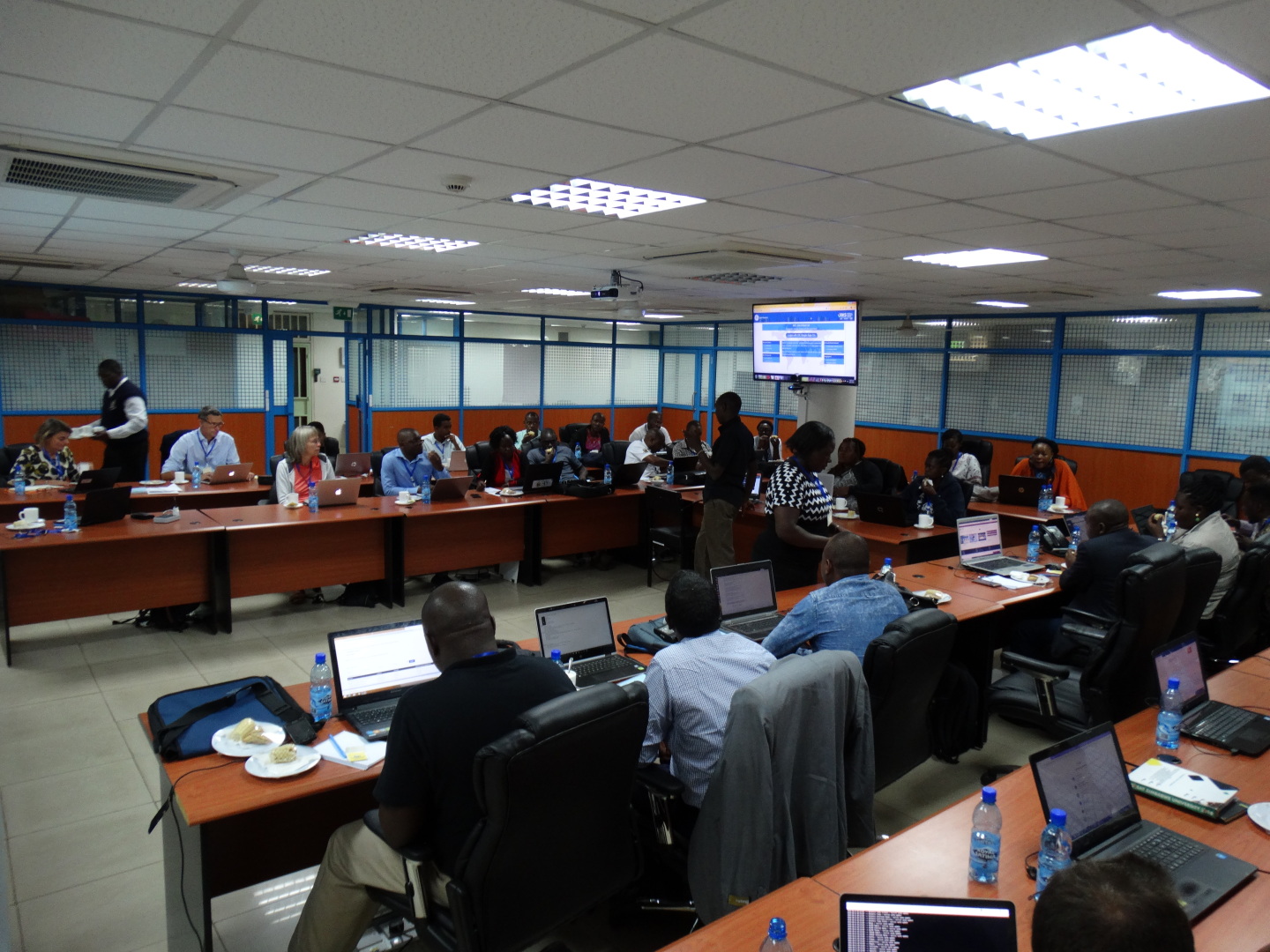CERN’s dedication to training and international collaboration in fields beyond physics research is thriving, with its education activities being exported to developing countries. One recent example is the CERN-UNESCO School on Digital Libraries that took place in Nairobi, Kenya, from 8 to 12 October 2018. Aimed at improving access to information for African researchers and increasing the global visibility of African research, the School represents an important contribution to international knowledge-sharing from CERN.
After Rwanda, Morocco, Senegal and Ghana, Kenya was the fifth host country of the School on Digital Libraries. About 35 librarians and library system managers from Kenya, Cameroon, Somalia, Tanzania, Uganda, Zambia and Zimbabwe convened at the University of Nairobi to acquire new skills for running digital library systems and a better insight into the technologies that facilitate the circulation of academic production within libraries. The programme was a mixture of theory, practical exercises and active participation, with contributors coming from CERN’s Scientific Information service and Technology department, the National Library of Uganda, TIND, Elsevier and EIFL.
The training focused on open access and open knowledge, with the clear goal of facilitating libraries’ access to a more comprehensive body of literature, as well as getting African repositories well-stocked with all the local academic production. Participants were introduced to different approaches to running the open-source digital repository platform Invenio, which was born at CERN. Complementary hands-on sessions were on offer, one using the service Zenodo and the other using Open Access Africa (OAA). OAA was deployed and launched for this workshop by the CERN spin-off TIND, which will make the platform available free of charge for two years. Six libraries have already signed up to test it with real data.
In addition to implementing what they learned during the workshop in their home institutions, the participants showed a keen interest in sharing their expertise with others, networking being one of the key benefits of the school. “We shall share the knowledge about CERN with other colleagues in our country and those of the Central African sub-region so that they can also benefit from this enriching programme in the future”, said Cameroonian participants Atabeh Uta-Rein and Tangmo Norbert.
To further enhance their skills, six of the attendees will be invited to CERN in June 2019 to meet experts and receive more in-depth training.
The CERN-UNESCO School on Digital Libraries is an education and outreach project within the CERN & Society Foundation. The 2018 school in Kenya was made possible thanks to a generous donation from Ms Margarita Louis-Dreyfus.
To learn more about the CERN & Society Foundation’s activities and how you can be involved, visit the dedicated website.

